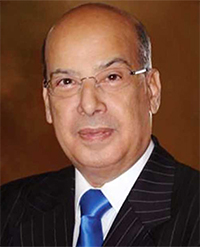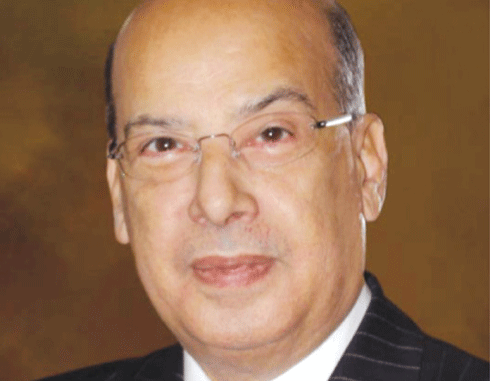
In what is increasingly becoming a pattern of ignoring established procedures and authority in the Organisation of American States (OAS), a delegation went to troubled Haiti on June 19 without any discussion or mandate by the Permanent Council, the organ responsible for making and overseeing policy between General Assemblies.
The results of the unmandated OAS delegation to Haiti are left to be seen, but early reports by the US public service broadcaster, the Voice of America (VOA), indicate a hostile response so far.
Over the last few weeks, massive protests have rocked Haiti with thousands nationwide demanding the resignation of President Jovenel MoÏse over fraud and corruption allegations. A report, published on May 31, concerning misspending of monies from a Petro Caribe Fund implicated two companies closely connected to President MoÏse. While he has denied the allegations, protests have intensified.
A May 2019 report on Haiti by the US-based Institute for Justice and Democracy states that MoÏse’s “administration has engaged in human rights abuses, flouted the rule of law, and mismanaged the economy in ways that disproportionately impact the poor. In the long term, this administration’s failures are enabled by years of flawed elections, a dysfunctional justice system and domestic and foreign economic policies that have impoverished the majority of Haitians”.
The usual response in the OAS to situations such as Haiti now faces, is that countries, like the United States and Canada, backed by others, call for the establishment of a Working Group to monitor the situation in the country; demand the establishment of investigatory machinery; insist that the Government provide guarantees for safety of protestors; and stipulate that a supervised process of dialogue be instituted between all political parties. Further the Inter-American Commission on Human Rights quickly produces reports that are used to rouse international pressure on governments.
This is what occurred in relation to other countries, most recently Nicaragua, but oddly it is not what happened in relation to Haiti, even though the MoÏse government joined in OAS resolutions that condemned the governments of Venezuela and Nicaragua.
In fairness, I note that the delegation of Canada had weeks ago suggested to the Haitian representatives that the situation in the country be brought before the Permanent Council – a request that was resisted by Haiti’s representation at the OAS.
Instead of action being taken on the authority of the Permanent Council after due deliberation and decision, the visit of a delegation to Haiti seems to have been organised between the Ambassador of the United States, Carlos Trujillo, and the Secretary-General, Luis Almagro in response to a letter of invitation from the Government of Haiti that, most unusually, was not distributed to OAS member states as is the norm.
The Haitian letter, dated June 14 according to the Miami Herald newspaper, has still not been circulated to member states of the OAS up to the time of writing.
The first official inkling that any OAS member state had of a delegation going to Haiti came on June 17 in an announcement by Ambassador Trujillo, unusually, in a meeting of a committee preparing for the OAS General Assembly and not in the right body, the Permanent Council. Ambassador Trujillo stated that: “The United States is pleased to accept this invitation in representation of all Council members”. Thereafter, a team he headed that included Gonzalo Koncke, the Chief of Staff to the OAS Secretary-General, went to Haiti on Wednesday, June 19 with no prior mandate or authority from the Permanent Council.
It is most unlikely that, having not discussed, authorized or mandated the delegation to Haiti and having never been made privy to the Haitian letter, that the entire Permanent Council of the OAS can embrace it, particularly as, according to media reports, the OAS was vilified by protestors. The VOA reported a representative of one protest group as stating: “That’s why we want everyone to know we do not recognise this (OAS) mission. Before they even arrived, we considered them persona non grata.”
In the event, the visit by Ambassador Trujillo’s delegation which was always a risky endeavour because of its suddenness, does not appear to have assuaged the concerns that have motivated the recent riots in Haiti or to have promoted dialogue. But time and events will better judge the efficacy of the effort.
Any OAS endeavour in Haiti required careful pre-planning with dedicated time to consulting fully with all sectors of the society for as long as it takes. A one-day visit, while a bold attempt, might not have been adequate.
The external approach to Haiti’s deep-seated problems is often rooted in the objective of stopping the thousands who flee its shores as refugees from its desperate poverty and in curbing the trafficking of drugs also occasioned by its abject poverty. The objective is less about helping Haiti and more about protecting the interests of others.
Yet, Haiti, with a population of 11 million, has less than a million people in permanent employment; over 60 percent of the population live in extreme poverty; the level of literacy is 61 per cent (in the rest of the Caribbean it is an average of 92 per cent); and it is plagued by corruption. In short, Haiti is a continuing powder keg of dissatisfaction. That it has managed not to erupt in greater conflict is a tribute to the tenacity of its people to survive; it is also an indication of how beaten-down and helpless the great majority feel.
Further, Haiti has been impoverished and kept in thrall to foreign occupiers for most of its existence since its revolution in 1804 to free its people from enslavement. Therefore, its people’s distrust of foreign interposition, especially when they feel the purpose is not in their broad interest, is understandable and should always be considered.
No piece meal response to Haiti’s fundamental economic and social problems and their attendant political instability, and no lectures, promises and pressures will quell disquiet.
The Haitian people are owed a great debt for their historic struggle that ended enslavement in their own country and opened the pathways to end slavery in all the Americas, especially as they continued to pay the price for almost two hundred years.
The OAS should address the situation in Haiti not in ad-hoc ways, but by using its convening capacity, in association with legitimate representatives of the Haitian community, to bring together the institutions of the international community in the delivery of a comprehensive scheme to reform and transform the country in all aspects of the governance of its political, social and economic systems.













